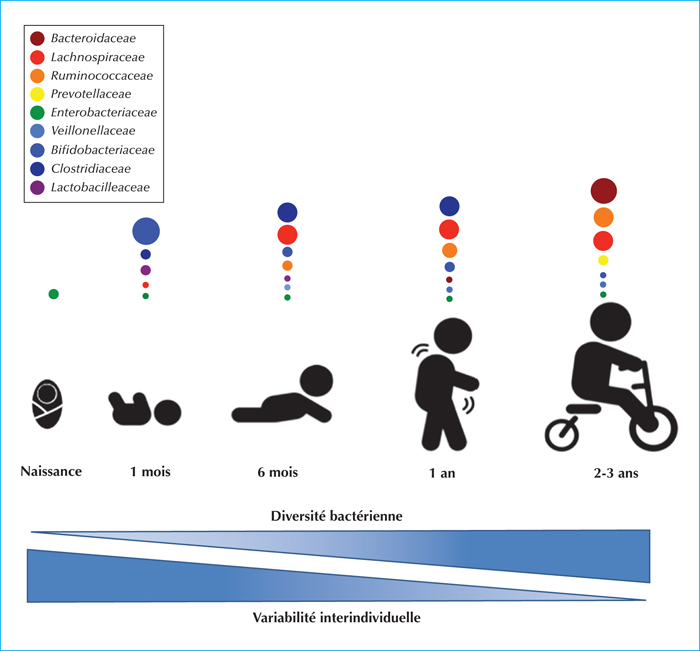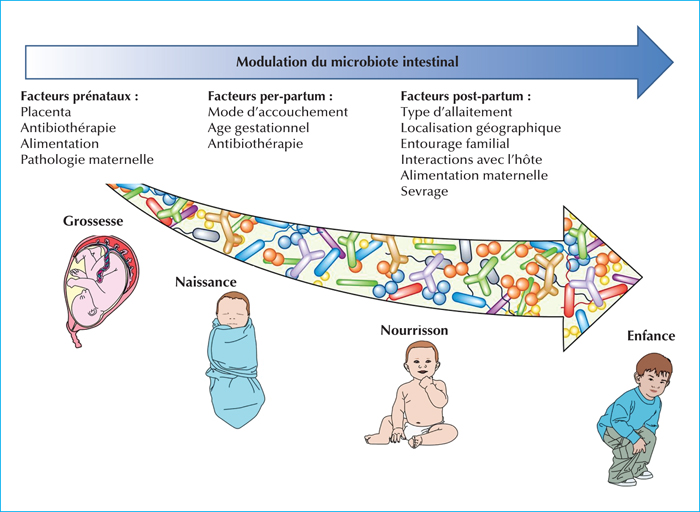Médecine thérapeutique / Pédiatrie
MENUMicrobiota colonization of the infant gut Volume 20, issue 3, Juillet-Août-Septembre 2017
Urgences Pédiatriques-Pédiatrie générale,
330, avenue de Grande Bretagne,
TSA 70034,
31059 Toulouse cedex 09
- Key words: microbiota, gut colonization, infant
- DOI : 10.1684/mtp.2018.0651
- Page(s) : 167-72
- Published in: 2017
The gut microbiota, a complex and dynamic population of microorganisms, is regarded as an “invisible organ” of the human body and considered as an important factor for host health. The human microbiome is the totality of microorganisms and their collective genetic material present in the human body. From birth through to the initial stages of weaning, intestinal microbial composition has a significant impact on infant gut health. If the establishment of the stable adult microbiota is programmed in infancy, it may lead to a lifelong signature with significant effects on health. This dynamic microbial population develops rapidly from birth until 2 to 3 years of age, when adult-like composition and stability are established. Recent advances in culture-independent sequencing technologies have allowed the identification of key microbial species involved in the initial colonization process. Recent studies using molecular techniques suggest the presence of bacterial communities in the placenta, amniotic fluid, and meconium from healthy pregnancies. Host genetics, maternal health status, gestational age, mode of delivery, mode of feeding and antibiotics may also impact development of the gut microbiota.



